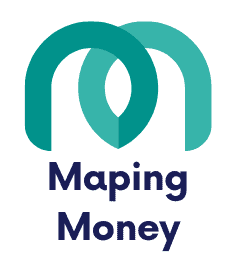Three Core Principles for Effective Personal Budgeting
Effective personal budgeting is built on three core principles: awareness, allocation, and adaptability. You need to be aware of your spending habits to distinguish between your needs and wants. Next, allocate your income wisely—consider utilizing the 50/20/30 rule to balance essentials, savings, and discretionary spending. Finally, be adaptable; regularly review and adjust your budget to align with any changes in your financial situation. This dynamic approach guarantees you stay on track toward your financial goals. If you’re interested in understanding more strategies to enhance your budgeting journey, there’s plenty more to explore.
Key Takeaways
- Understand and distinguish between needs and wants to prioritize essential expenses in your budget.
- Set clear, SMART financial goals to guide your spending and saving decisions effectively.
- Regularly review and adjust your budget to adapt to changes in income and expenses.
- Build an emergency fund covering 3-6 months of living expenses for financial security.
- Utilize budgeting tools and apps to enhance money management and track spending in real time.
Understanding Personal Budgeting

Understanding personal budgeting can seem intimidating at first, but once you break it down, it becomes much more manageable. At its core, personal budgeting is about aligning your spending with your financial goals. You’ll want to track your income and expenses, distinguishing between needs—like housing and food—and wants, which allows for smarter financial planning. Utilizing methods like the 50/20/30 rule can simplify this process, directing 50% of your income towards needs, 20% to savings, and 30% for discretionary spending. Regularly reviewing your budget is essential for adapting to changes in your personal finances, ensuring you maintain financial stability. Embracing tools like budgeting apps can enhance your money management, giving you clarity and control over your financial journey.
The Role of Awareness
Awareness plays a pivotal role in effective personal budgeting, as it helps you stay on top of your spending habits. By tracking your daily expenses, you can identify patterns and areas for improvement in your financial plan. Research shows that those who actively monitor their spending money are 30% more likely to stick to their budget. Understanding the difference between needs and wants also enhances your decision-making.
| Expense Type | Needs | Wants |
|---|---|---|
| Examples | Rent | Dining Out |
| Priority | High | Low |
| Impact | Essential | Discretionary |
Utilizing budgeting tools and apps can further boost your awareness, empowering you to make informed choices about your finances.
Importance of Allocation

Allocating your income effectively is key to maintaining a balanced budget and achieving your financial goals. By following strategies like the 50/20/30 rule—where 50% of your monthly income goes to needs, 20% to your savings account, and 30% to wants—you prioritize what truly matters. This allocation guarantees you cover essential expenses like housing and food before indulging in discretionary spending. Research shows that those who allocate specific percentages to savings enjoy greater financial security and lower stress during tough times. Additionally, using techniques like a zero-based budget helps assign every dollar a purpose, fostering intentional spending. Regularly reviewing your allocation can adapt to changing circumstances, ultimately enhancing your cash flow management and promoting long-term financial liberation.
Needs Vs Wants
Distinguishing between needs and wants is essential for effective budgeting. Needs are your lifelines—food, shelter, and healthcare—while wants are the luxuries that bring joy but aren’t necessary for survival. Prioritizing your needs allows you to allocate resources efficiently, ensuring you cover essential expenses before indulging in non-essentials. This strategy prevents financial strain and supports your journey towards stability and freedom. By recognizing your wants, you can practice mindfulness in spending, making informed choices about when to treat yourself or when to save. Ultimately, distinguishing between needs and wants empowers you to make better financial decisions, helping you break free from the cycle of unnecessary spending and move closer to your personal financial liberation.
Setting Financial Goals

When it comes to managing your finances, setting clear financial goals is essential for steering your spending and saving in the right direction. Start by identifying both short-term and long-term goals. Short-term goals, like building an emergency fund of 3-6 months’ worth of expenses, not only provide immediate motivation but also create a safety net for life’s surprises. For long-term goals, think retirement savings; make sure they’re specific, measurable, achievable, relevant, and time-bound (SMART). This approach enhances clarity and increases your chances of success. Remember, regularly reviewing and adjusting your financial goals is vital. Life changes, and so should your plans, ensuring you remain on the path to financial liberation and stability.
Building an Emergency Fund
An emergency fund is a essential component of your financial safety net, designed to cover 3-6 months’ worth of living expenses. This fund gives you the freedom to navigate unexpected events like job loss or medical emergencies without stress. Start by setting aside a manageable amount, like $50 to $100 each month, until you reach your goal. It’s wise to keep this money in a separate savings account, so you won’t be tempted to dip into it for non-emergencies. Remember, about 30% of Americans lack any emergency savings, which highlights how important it is to build yours. Regularly contributing, even after you hit your target, guarantees you’ll always have money to pay your bills and maintain your financial independence.
Regular Budget Reviews

Building an emergency fund is just one step in maintaining your financial health; regular budget reviews play a significant role in ensuring your financial strategy stays on track. By evaluating your budget monthly, you can adapt to life’s changes and keep track of your spending. Here’s how to make the most of your reviews:
- Look at your budget and compare actual spending to planned amounts.
- Identify areas where you’re overspending and discover potential savings.
- Adjust your budget for unexpected expenses or shifts in income.
- Track your progress against financial goals to stay motivated.
Regular reviews not only help in paying your bills but also empower you to achieve long-term financial freedom. Embrace this practice for better financial outcomes!
Adjusting to Life Changes
Life’s inevitable changes can throw your financial plans off course, making it essential to adjust your budget accordingly. Whether it’s marriage, job loss, or welcoming a child, these milestones demand a fresh look at your finances. Make certain you’re documenting expenses during these adjustments to uncover spending habits that might need tweaking. This insight allows you to prioritize new financial goals, like saving for education or retirement. Utilizing flexible budgeting techniques, such as the 50/20/30 rule, can help manage fluctuating income and expenses effectively. By regularly updating your budget to reflect your current situation, you can guarantee you have enough money to maintain your desired lifestyle and achieve true financial freedom amidst life’s changes.
Tips for Staying Disciplined

Staying disciplined with your budget requires commitment and strategic planning. To help you stay on track every month, consider these tips:
- Set Clear Financial Goals: Establishing specific objectives gives you a sense of purpose and motivation to stick to your budget.
- Pay Yourself First: Allocate a portion of your income for savings before addressing other expenses. This prioritizes your financial health.
- Use Budgeting Tools: Leverage apps to monitor your spending in real-time. This keeps you aware and accountable.
- Regularly Review Your Budget: Set aside time weekly or monthly to assess your financial progress. Making adjustments reinforces discipline and helps you stay aligned with your goals.
With these strategies, you can achieve financial freedom and enjoy a more liberated lifestyle.
Resources for Further Learning
For those keen to deepen their understanding of personal budgeting, a wealth of resources is at your fingertips. Immerse yourself in podcasts like “Listen Money Matters,” “How-To Money,” and “The Dave Ramsey Show” for practical insights on budgeting strategies. If you prefer visual learning, check out YouTube channels such as “The Financial Diet” and “Two Cents” to grasp financial management concepts easily. For a more thorough approach, consider reading “Economically Savvy: Your Personal Guide to Wealth and Financial Wellness.” Engage with interactive platforms like Brilliant to sharpen your budgeting skills. Finally, don’t underestimate the power of community—join forums and discussions to share experiences and gather valuable tips from others on a similar journey toward financial freedom.
Frequently Asked Questions
What Are the 3 P’s of Budgeting?
The 3 P’s of budgeting are prioritization, planning, and monitoring. You’ll want to focus on your needs first, create a clear budget, and regularly check your spending to guarantee you’re staying on track.
What Are the 3 R’s of a Good Budget?
The 3 R’s of a good budget are Recording, Reviewing, and Revising. By tracking expenses, analyzing patterns, and adjusting as needed, you’ll gain control over your finances, empowering you to make informed decisions for freedom.
What Are 3 Priorities in a Budget?
When budgeting, think of it as steering your financial ship. First, prioritize needs over wants. Next, commit to savings for future freedom. Finally, tackle debt to keep your financial sails full and steady.
What Are the 3 Steps of Budgeting?
To budget effectively, you’ll want to gather your financial data, categorize your expenses, and create a budget plan. This process empowers you to take control of your finances and achieve your financial goals.





